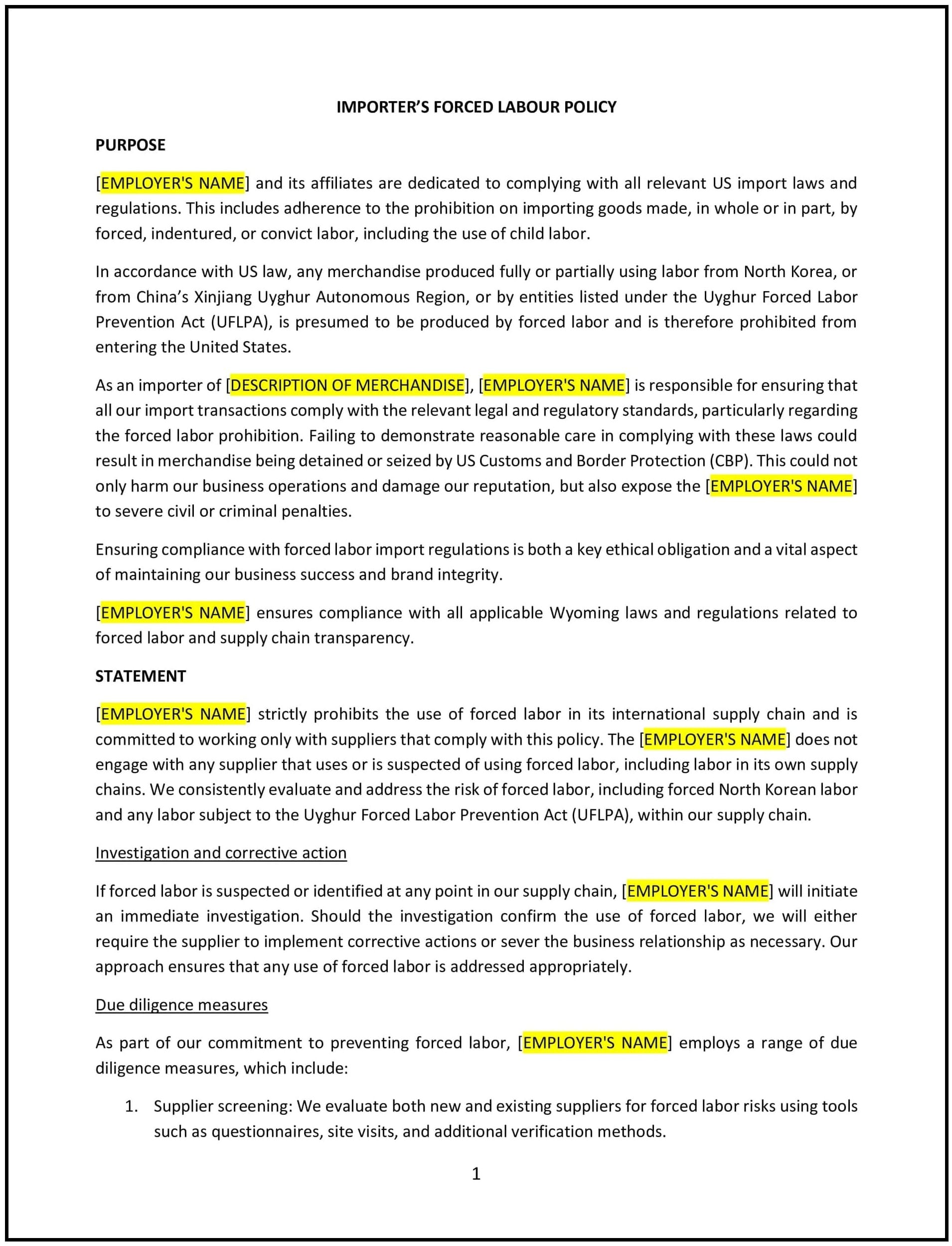Importer's forced labour policy (Wyoming): Free template
Got contracts to review? While you're here for policies, let Cobrief make contract review effortless—start your free review now.

Customize this template for free
Importer's forced labour policy (Wyoming)
In Wyoming, an importer’s forced labour policy ensures that businesses importing goods maintain ethical supply chains and promotes compliance with U.S. and international laws prohibiting forced labor. This policy is especially critical for importers seeking to mitigate legal, reputational, and operational risks while upholding ethical standards.
This policy outlines the organization’s commitment to preventing forced labor in its supply chain, the procedures for monitoring suppliers, and the steps to address violations.
How to use this importer’s forced labour policy (Wyoming)
- State the commitment: Clearly articulate the organization’s stance against forced labor and its dedication to ethical sourcing practices.
- Identify applicable laws: Reference key laws and regulations, such as the U.S. Tariff Act of 1930, which prohibits the importation of goods made with forced labor, and the Uyghur Forced Labor Prevention Act (UFLPA).
- Implement supplier due diligence: Outline procedures for vetting suppliers, including audits, certifications, and risk assessments to support compliance with forced labor regulations.
- Establish reporting mechanisms: Provide a confidential channel for employees, suppliers, or third parties to report suspected forced labor violations.
- Detail corrective actions: Include steps for addressing non-compliance, such as terminating supplier relationships, providing remediation to affected workers, or reporting violations to authorities.
Benefits of using an importer’s forced labour policy (Wyoming)
A robust forced labor policy offers several advantages for Wyoming importers:
- Supports compliance: Aligns with federal and international laws, reducing the risk of legal penalties or trade restrictions.
- Protects reputation: Demonstrates a commitment to ethical business practices, building trust with customers and stakeholders.
- Mitigates risks: Prevents supply chain disruptions by proactively addressing forced labor concerns.
- Promotes transparency: Establishes clear guidelines for monitoring and reporting forced labor issues.
- Adapts to industry needs: Reflects the unique challenges of Wyoming businesses involved in importing goods.
Tips for using an importer’s forced labour policy (Wyoming)
- Conduct regular audits: Regularly audit suppliers to ensure they adhere to anti-forced labor practices and document findings.
- Train employees and suppliers: Provide training on identifying and preventing forced labor throughout the supply chain.
- Leverage technology: Use supply chain tracking tools to improve visibility and traceability of goods.
- Collaborate with stakeholders: Partner with industry groups, NGOs, and regulatory bodies to strengthen anti-forced labor efforts.
- Update regularly: Review and revise the policy periodically to reflect changes in laws or supply chain dynamics.